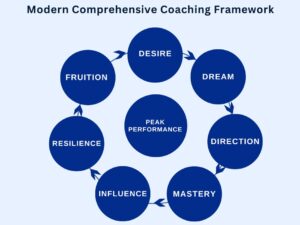
Corporate America Faces a Crisis as Women Leaders Exit in Record Numbers Corporate America is grappling with a concerning trend as women leaders exit their roles at an unprecedented rate. This exodus of female talent from leadership positions is raising alarms and shedding light on the challenges that persist within the corporate world. In addition to this, a significant portion of the U.S. workforce is struggling with the transition to rookie managers, while leadership coaching programs remain alarmingly scarce, with most companies promoting managers based on individual performance.
Women Leaders Departure Surge:In a concerning development, women leaders are leaving corporate America in droves, marking the highest attrition rate in years. This departure has far-reaching implications, as it threatens to undo years of progress towards gender diversity and equality in the workplace. It underscores the pressing need for organizations to address the root causes of this exodus and create more inclusive environments that support women’s career growth and retention.
Rookie Managers Impact on Workforce Sleep:Approximately one-fifth of U.S. workers admit to experiencing sleep difficulties when working under the supervision of rookie managers. This statistic highlights the challenges employees face when adapting to new leadership styles and management approaches. It underscores the importance of effective leadership training and mentorship programs to ensure that managers are equipped with the skills necessary to lead and support their teams.
Scarcity of Leadership Coaching Programs:Shockingly, only 35% of companies offer formal leadership coaching programs for their employees. Leadership coaching plays a crucial role in developing the next generation of leaders, providing them with the guidance, skills, and emotional intelligence needed to excel in managerial roles. The lack of such programs represents a missed opportunity for organizations to nurture talent and foster leadership growth.
Promotion Based on Individual Performance:Many organizations still adhere to the traditional practice of promoting employees to management positions solely based on their performance as individual contributors. While individual performance is undoubtedly important, effective leadership requires a distinct skill set, including the ability to manage and inspire teams, communicate effectively, and make strategic decisions. Relying solely on past individual performance can lead to the elevation of individuals who may not be well-suited for leadership roles.
The current landscape of corporate America reveals a pressing need for organizations to rethink their approaches to leadership development and talent retention. Addressing the exodus of women leaders, providing adequate support for employees working under rookie managers, and implementing formal leadership coaching programs are essential steps in fostering a more inclusive and effective workplace. Moreover, reevaluating promotion criteria to encompass leadership competencies is crucial for ensuring that individuals who ascend to managerial positions are well-prepared to guide their teams and organizations toward success in an ever-evolving business landscape.





